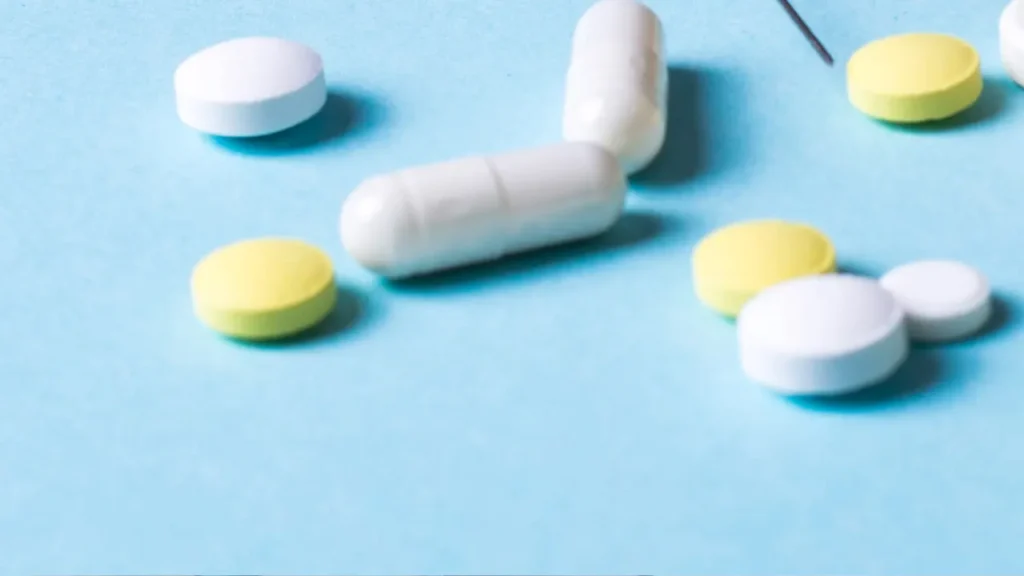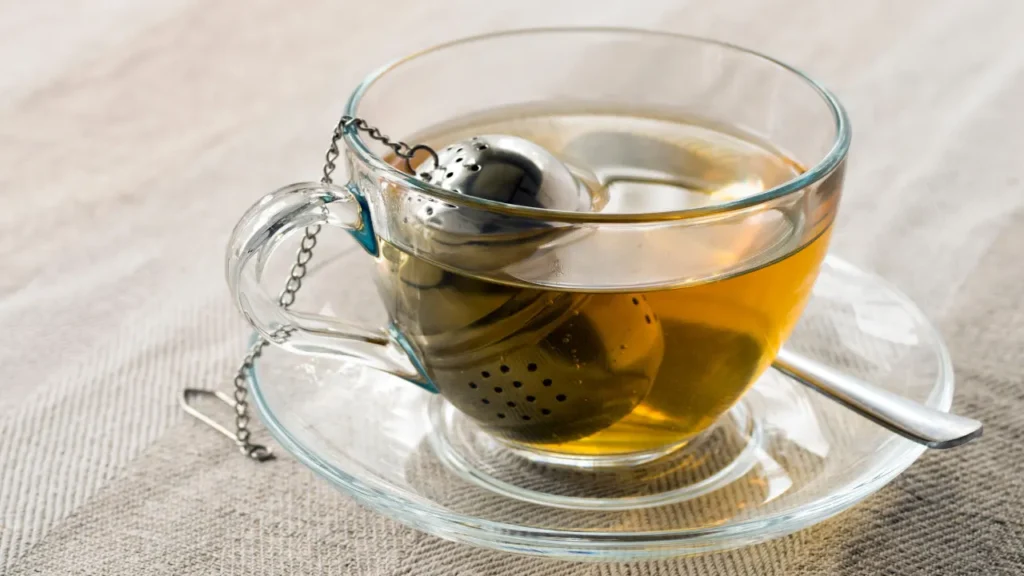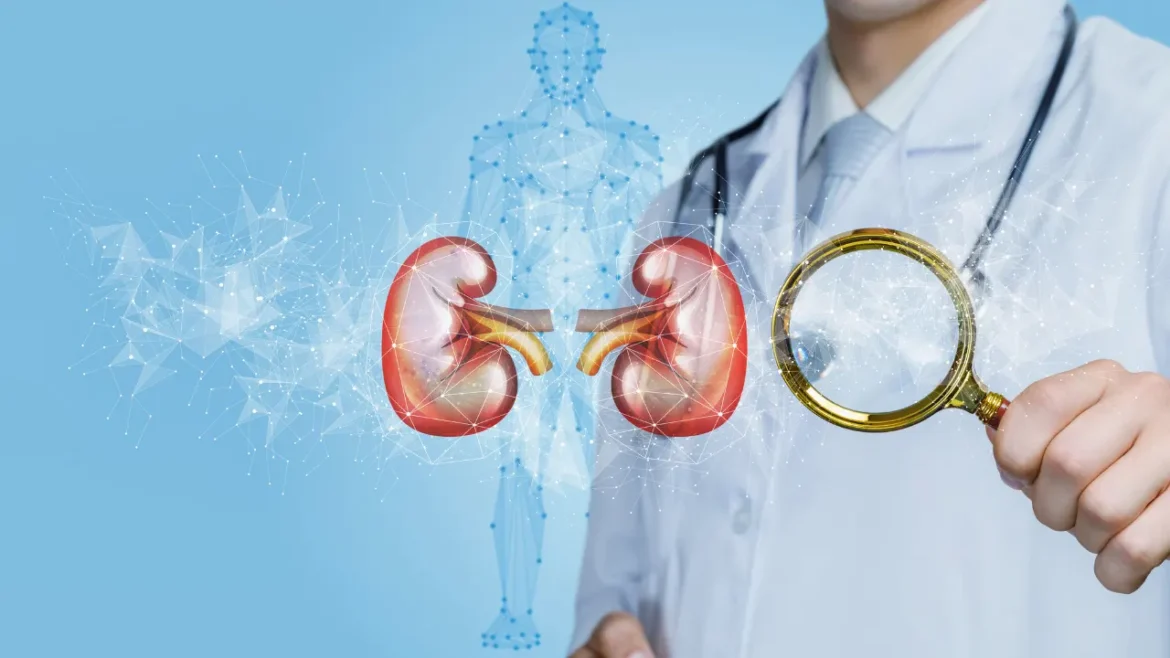Description
The term kidney disease refers to a group of ailments that might impair the kidneys’ ability to efficiently filter waste from the blood. According to the anticipated glomerular filtration rate (EGFR), kidney disease severity and progression are commonly divided into phases. The build-up of waste materials and fluid imbalances can trigger a variety of skin problems when kidney function declines. Dryness, bruising, itching (pruritus), discoloration, and edema are the typical skin symptoms of renal failure.
You May Also Like:
LUPUS: DESCRIPTION, CAUSES, AND TREATMENT PROTOCOL
SCALP PSORIASIS: DESCRIPTION, CAUSES, AND TREATMENT PROTOCOL
Kidney Disease: How it Can Affect Your Skin: Description, Causes, And Treatment Protocol is an original (HealthXWire) article.
Possible Causes
Multiple underlying conditions can result in skin problems if you have been diagnosed with renal disease. When the kidneys are not functioning properly, uremic toxins accumulate in the body and can directly damage the skin, causing itching and inflammation. Unbalanced fluid and electrolyte levels can impact the health of your skin, as your elevated phosphorus and calcium levels fluctuate. If you have been diagnosed with kidney illness, your skin health can also be influenced by metabolic and hormonal variables, such as unbalanced levels of parathyroid hormone and vitamin D.
Exacerbating and Mitigating Factors
If you have a renal illness, several factors can either worsen or improve your skin symptoms:
Exacerbating Factors:
Malnutrition:
Malnutrition can result from kidney illness because it can impair how nutrients are metabolized and absorbed. Protein, vitamin, and mineral shortages can affect your skin health and cause skin problems.
Fluid Imbalance:
Edema and swelling can result from fluid retention, which is frequently observed in kidney illness. Stretching of the skin, as a result, can aggravate skin conditions like tightness, itchiness, and irritation.
Uremic Toxins:
The body accumulates waste products and poisons as a result of impaired kidney function. These uremic toxins can have a negative impact on skin health and aggravate symptoms including itching (pruritus), dryness, and modifications in skin tone or texture.
Electrolyte Imbalances:
Salt, potassium, and calcium levels in the body can all become out of balance due to kidney illness. Electrolyte imbalances can cause muscle cramps, dry skin, flaky skin, and other skin-related symptoms.
Medications:
Diuretics and phosphate binders are two examples of the drugs used to treat renal problems that can have side effects that damage the skin. For instance, phosphate binders can cause dry skin, while diuretics can raise the possibility of dehydration.
Mitigating Factors:
Adequate Nutrition:
Overall skin health can be promoted by eating a balanced diet and consulting a dietitian to resolve any dietary concerns. Skin health and healing depend on getting enough protein, minerals, and vitamins.
Optimal Fluid Balance:
Monitoring and controlling your fluid consumption can help you avoid fluid retention, minimize edema, and relieve symptoms associated with your skin.
Dialysis:
Regular dialysis sessions can assist in removing uremic waste from your body, improving your overall skin health, and minimizing symptoms like dryness and itching.
Skin Care Practices:
Dryness, irritation, and possible infections can be avoided by practicing proper skin care and using mild, hydrating cleansers.
Managing Blood Sugar and Blood Pressure:
The effects of renal illness on your skin can be lessened by controlling hypertension and blood sugar levels. This may entail taking medications, changing your lifestyle, and regularly observing your progress.
Avoiding Irritants:
Detergents, harsh soaps, and possible irritants can exacerbate skin symptoms and can lead to further complications, so they should be avoided if you have been diagnosed with any kind of skin problem associated with renal disease.
Sun Protection:
As renal disease can elevate sensitivity to sunlight, protecting your skin from overexposure to sunlight is crucial. Sunburn and additional skin damage can be avoided by applying sunscreen, using protective clothing, and finding shade.

Standard Treatment Protocol
The conventional kidney disease treatment plan tries to control the underlying problem and lessen its effects on multiple organ systems, including the skin.
Management of Kidney Disease: These include:
- Blood Glucose Management
If diabetes is what caused you to develop kidney illness, controlling blood glucose levels with exercise, diet, and medication can help you to avoid subsequent concerns, such as skin problems.
- Blood Pressure Control
Medications like angiotensin II receptor blockers (ARBs) or ACE inhibitors are frequently administered to treat hypertension linked to renal disease. Maintaining kidney function and indirectly improving skin health are also benefits of blood pressure management.
- Fluid Restriction
Fluid intake should be restricted in order to avoid fluid retention, swelling, and associated skin problems according to the phase and extent of your kidney disease.
- Protein Restriction
To lessen the strain on your kidneys, control waste build-up, and prevent possible cutaneous symptoms, a low-protein diet may be advised.
Skin Health and Dialysis:
Dialysis may be required to remove waste materials and surplus fluids from the circulation during episodes of advanced renal disease. Regular dialysis can help control fluid imbalances, uremic toxins, and electrolyte levels, indirectly enhancing your skin health.

Treatment Options
Options for treating skin conditions brought on by kidney illness attempt to treat the underlying reasons as well as the symptoms. The following are some possible treatments:
Moisturizers:
Kidney illness frequently manifests as dry skin. Applying over-the-counter moisturizers often throughout the day can assist to hydrate your skin.
Antihistamines:
Itching, a bothersome symptom linked to skin problems related to renal disease, can be relieved with the use of antihistamines.
Topical Steroids:
As previously mentioned, kidney illness frequently manifests as dry skin. Applying moisturizers that include steroids can further hydrate the skin more thoroughly and minimize the dryness and irritation.
Avoiding Irritants:
Detergents, harsh soaps, and other possible irritants that can aggravate skin symptoms should be avoided if you have renal illness and skin problems.
Adequate Hydration:
For healthy skin, sufficient hydration is crucial. Staying hydrated and drinking enough water will aid to enhance skin suppleness, lessen dryness, and advance general skin health.
Avoiding Sun Exposure:
Kidney disease can increase your skin’s susceptibility to UV damage, thus it is important to protect your skin from prolonged sun exposure. Protective clothes and broad-spectrum sunscreen may prevent subsequent skin issues.

Nutritional Supplements:
By supplying necessary nutrients that maintain skin health, dietary supplements can help manage skin problems caused by kidney disease. The following list of dietary supplements may be helpful:
- Vitamin D
Vitamin D deficiency brought on by kidney illness can affect the health of yourskin. Vitamin D supplements can improve skin barrier function, maintain proper levels, and possibly even lessen skin inflammation.
- Vitamin E
Antioxidant vitamin E can aid in defending your skin from oxidative stress-related harm. Additionally, it can lessen inflammation and encourage skin healing. Skin problems caused by renal illness can benefit from vitamin E supplementation.
- Omega-3 Fatty Acids
Fish oil supplements contain omega-3 fatty acids, which have anti-inflammatory characteristics that can help decrease inflammation of your skin. They might also enhance the moisture and general health of your skin.
- Zinc
A crucial mineral that helps with wound healing and healthy skin is zinc. Zinc supplements can enhance ulcer and skin lesion healing while also enhancing skin health.
- Selenium
The antioxidant properties of selenium, another mineral, can aid in preventing skin damage. Moreover, it can even have anti-inflammatory properties. If you have any skin problems and/or kidney illnesses, selenium supplements may be helpful.
Natural and Herbal Remedies:
Skin problems brought on by renal illness can be managed with the aid of natural and herbal medicines. While some herbal treatments and natural cures have proven potential in enhancing skin health, it is essential to remember that their efficacy and safety may vary. Before including any herbal or natural therapies in the treatment strategy, it is essential to speak with your healthcare provider. The following are some helpful recommendations:
- Aloe Vera
Aloe vera gel contains calming and hydrating properties that can ease itching and dryness of the skin. Additionally, it might have anti-inflammatory properties that are advantageous for skin disorders brought on by kidney illness. Aloe vera gel applied topically to skin irritations can also offer relief.
- Coconut Oil
Natural moisturizers like coconut oil can help soothe irritation and treat dry skin. When used topically, coconut oil can hydrate skin problems caused by renal illness and perhaps bring relief.
- Chamomile
Chamomile contains soothing and anti-inflammatory properties. Chamomile treatments, such as lotions or infusions, can ease itching, minimize skin inflammation, and enhance your general skin comfort.
- Oatmeal Baths
Baths with colloidal oatmeal might help calm inflamed skin and reduce irritation. Oatmeal creates a barrier of protection on the skin that temporarily relieves dryness and irritation.
- Calendula
Calendula, often referred to as marigold, possesses wound-healing and anti-inflammatory properties. Creams or ointments with calendula extract can relieve skin irritability and encourage skin healing.
- Herbal Tea Infusions
Several herbal teas, including chamomile, nettle, and dandelion, are thought to have detoxifying effects and can help maintain overall skin health. If you have renal illness, you may benefit from drinking such herbal teas as a component of a healthy diet and remaining hydrated.

Conclusion
It is important to keep in mind that herbal medicines and natural cures are not a replacement for standard medical care. They ought to be utilized as supplemental treatments under the guidance of a medical expert. You should also be aware of any possible allergies, drug interactions, and special contraindications related to these herbal treatments and natural remedies.
Additional resources for further reference
https://www.aad.org/public/diseases/a-z/kidney-disease-warning-signs
https://www.medicalnewstoday.com/articles/rash-kidney-disease-itchy-skin
https://www.kidney.org/atoz/content/chronic-kidney-disease-associated-pruritus-itchy-skin
https://www.news-medical.net/health/Renal-Disease-and-Skin-Problems.aspx
Important Note: The information contained in this article is for general informational purposes only, and should not be construed as health or medical advice, nor is it intended to diagnose, prevent, treat, or cure any disease or health condition. Before embarking on any diet, fitness regimen, or program of nutritional supplementation, it is advisable to consult your healthcare professional in order to determine its safety and probable efficacy in terms of your individual state of health.
Regarding Nutritional Supplements Or Other Non-Prescription Health Products: If any nutritional supplements or other non-prescription health products are mentioned in the foregoing article, any claims or statements made about them have not been evaluated by the U.S. Food and Drug Administration, and such nutritional supplements or other health products are not intended to diagnose, treat, cure, or prevent any disease.
Table of Contents


